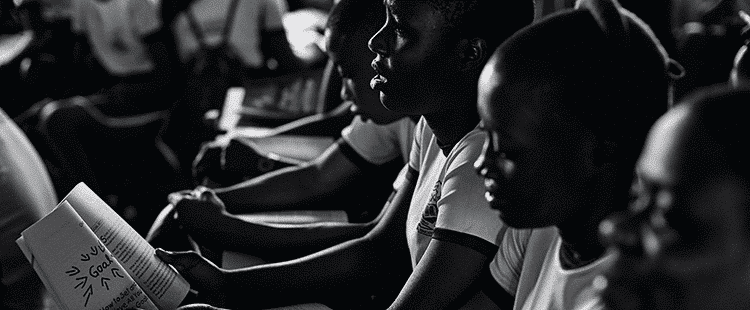
The INCLUDE team’s reading list: December 2021
About the reading list
One of INCLUDE’s core beliefs is that so much knowledge already exists, it just needs guiding to the right places and the right people in order to reach its full impact for policy and, ultimately, for development. Whether you are seeking information to guide policy, embarking upon a piece of research, or simply interested in broadening your knowledge and staying updated on inclusive development in Africa, we hope this source can be a good starting point.
- Collecting Evidence to Inform COVID-19 Vaccine Procurement Decisions – Vaccines are key to controlling COVID-19 in Africa, but available supplies across the continent remain extremely low. Global, regional, and national institutions have created mechanisms to procure vaccines and deploy them to their populations. Those organizations face important decisions, with the potential to protect societies and economies from further COVID-19 shocks, but also present a risk to essential services if the cost of COVID-19 vaccines depletes scarce health budgets. This toolkit by the CGD aims to support technical staff and decision-makers in countries that are interested in using Health Technology Assessment (HTA) to inform the procurement of COVID-19 vaccines.
- As Omicron sweeps through Zimbabwe, how are people responding? – Omicron has swept through Zimbabwe over the last fortnight. This initially resulted in panic, with a rush to get vaccinated and the government swiftly responding with further lockdown measures. People report that about 50-60% of rural villagers have been struck down by a virulent ‘flu in the past weeks, suggesting massive under-reporting in official figures. So far, however, just as observed in Guateng in South Africa, which has been the epicentre of the Omicron epidemic, there have been very few deaths. As they have experienced the disease over the last couple of weeks and been able to treat its symptoms, people have become more relaxed. With such rapid spread, the learning cycle in this pandemic is speeding up, with increased innovation and collaboration.
- Webinar Series: Lessons on Covid-19 crisis policy responses – PEP is hosting a series of online roundtable discussions on lessons for more effective and inclusive policy responses to the Covid-19 crisis in the Global South. Local researchers and national government officers will share and discuss findings from their projects on the effectiveness of early or potential public policy responses to mitigate the impacts of the Covid-19 crisis, particularly for the most vulnerable populations in the Global South. PEP supported these projects under the Rapid Response initiative and the IDRC-funded COVID-19 Responses for Equity (CORE) initiative.
- COVID-19 in Nigeria : Frontline Data and Pathways for Policy – COVID-19’s “double shock”—health and economic—has intensified the need for new evidence to understand jobs and livelihoods in Nigeria. With social protection limited, households resorted to negative coping strategies—including reducing food consumption—that hurt their current and future welfare. A new World Bank report uses high-frequency data to examine effects on human capital, livelihoods, and welfare. The report draws on the Nigeria COVID-19 National Longitudinal Phone Survey (NLPS), a distinctive, nationally-representative survey that captured key socioeconomic information from households for 12 consecutive rounds between April 2020 and April 2021.
- A Poll of Education Officials in 35 Countries: Three Reasons the Idea of a “Learning Crisis” Isn’t Getting Traction – With half of kids in low- and middle-income countries unable to read a simple story by the end of primary school, international organizations and foreign aid donors have declared a “global learning crisis.” The World Bank, UNICEF, the United States, the United Kingdom, and the Gates Foundation all promote greater emphasis on “foundational skills,” implying a renewed focus on basic literacy and numeracy in primary school, measured through an increased use of standardized testing. Are education policymakers and bureaucrats in developing countries on board with this agenda?
- NEW Quick Guide: Towards Disability Inclusive Education – Half of the estimated 65 million primary and lower secondary-school age children with disabilities in low-income countries are not in school. Inclusion does not happen automatically. It requires new ways of looking at disability and inclusive education, as well as active participation of all the different stakeholders. This guide by the DCDD offers more information on what inclusive education is, what steps programme managers, proposal developers and field coordinators can take and what tools and resources they can use to move towards more inclusive education programmes.
- Why Data Protection Matters for Development: The Case for Strengthening Inclusion and Regulatory Capacity – In this note, the CGD review lessons learned through two years of research in the Governing Data for Development project, which looked at the most significant challenges governments face in using and regulating the use of data to meet their development aims. They offer suggestions for policymakers seeking to regulate data use while keeping up with rapidly evolving digital practices, and recommendations for how the international development community and high-income countries can promote a more inclusive and level playing field.
- To Serve the Poor Better, Financial Systems Need to Talk to Each Other: Announcing a New Research Agenda on Interoperable Payments – The inability of two financial institutions to talk to each other means that they are not interoperable. Interoperability matters for the development of a broader digital finance ecosystem, so that people use their formal financial products, in the same way, they would have to transact in cash. Over the next three years, the Financial Inclusion Program (FIP) at Innovations for Poverty Action (IPA) will be evaluating interoperable payments systems to answer key questions to aid decision-making around the design and impact of these complex payment systems.
- Mobile financial services can increase impacts of microfinance organizations—but the story is more complicated than we think – Microfinance organizations have two goals: One is to increase financial inclusion, the other to be financially profitable—or at least financially sustainable. Balancing those goals is not easy, as leadership must choose between prioritizing social impact versus financial performance. This Brookings article discusses the benefits and costs associated with mobile financial services implementation, mobile financial service uptake by microfinance organizations in sub-Saharan Africa, and the real impact of mobile financial services for microfinance organizations.
- Digitalizing Africa’s mines – In 2019, minerals and fossil fuels accounted for more than a third of exports from at least 60 percent of African countries. Unfortunately, a lack of systematic geological mapping and exploration means that the full scope of the continent’s resources remains unknown. To unlock mineral-rich African countries’ full potential, mining companies and African governments must embrace Fourth Industrial Revolution (4IR) technologies.
- Underrepresentation of developing country researchers in development research – This article presents evidence of how researchers from developing countries are represented in three areas of research: conference presentations, articles in journals, and citations. The authors find that the bulk of research on development and development policies in the South is conducted by researchers from the North. Fewer than one in six of the articles published in top 20 development journals from 1990 to 2019 were by Southern researchers, while close to three-quarters were by Northern researchers. The remaining 11% were collaborations by Southern and Northern researchers. There has been no evidence of improvements over time.
- Practical Impact Evaluation training for francophone policy actors – Policy-makers, advisors, and actors from West and Central Africa benefited from practical advice on using RCT Impact Evaluations during a PEP training session at the first Annual Camp for Emerging Francophone Evaluators (CAEEF), held in Benin. The 2021 CAEEF was organised by the African Institute for Monitoring and Evaluation of the Impact of Development Policies, Programmes and Projects (Le Baromètre) on the theme of “Formulation, Analysis and Evaluation of Public Policies less than a decade away from the SDGs: Theory and practical application in the West African Francophone environment”. It took place from November 22 to 26, 2021, in Bohicon, Benin.
- From Research to Policymaking with 50×2030 in Ethiopia – Many low-income countries are unable to produce high-quality data that is vital for the sound decision- and policy-making necessary to achieve the 17 Sustainable Development Goals (SDGs). The 50×2030 Initiative to Close the Agricultural Data Gap is designed to sustainably and efficiently address this problem by building strong, nationally representative integrated survey programs that produce high-quality and timely agricultural and rural data. The initiative, managed by the International Fund for Agricultural Development, recently offered competitive grants to local researchers that demonstrate the use of survey data to generate a practical research output that can be applied by decision-makers to improve development outcomes.
- Social institutions and gender index, 2021 regional report for Africa – The OECD Social Institutions and Gender Index series analyses how formal and informal laws, social norms and practices discriminate on the basis of gender and helps governments and development practitioners identify policies and programmes to tackle this discrimination. The SIGI series proposes gender-transformative actions at the international, regional and national levels. It identifies the underlying drivers of gender inequality and proposes whole-of-society entry points to build more inclusive societies and opportunities for all.
- African Women and Girls in a Shrinking Civic Space – Today, cyberspace offers alternative ways through which women challenge political and traditional systems. The need to invest in technology, innovative financing, and building women’s solidarity through women-only spaces; recognising women’s work and strengthening their movements is more urgent now than ever before. This report is part of the Civic Space research project led by The Council for the Development of Social Science Research in Africa (CODESRIA).
- Facilitating access to agricultural credit for women’s empowerment in Burkina Faso – In 2014, more than 93% of Burkina Faso’s women were working in the agricultural sector, but only 5% had access to credit, limiting their productivity. This is especially a problem in rural areas where poverty levels are very high at over 47%. A team of local PEP researchers found that policies to promote financial inclusion must be adapted to the credit constraints of the target population. Specifically, establishing an agricultural credit guarantee fund with a 60% quota for women, combined with a financial education programme, will promote women’s financial inclusion and economic empowerment.
- Facilitating the financial inclusion of rural women micro-entrepreneurs in Benin – Despite the majority of women in rural Benin developing microenterprises, most remain financially excluded. A variety of government and financial institution programs have aimed to address this problem by offering microcredit. However, most of these programs have been marked by low repayment rates. A team of local researchers found that informal financing can be better than formal credit for increasing the profits of women-led rural microenterprises, depending on the age and education level of the woman entrepreneur, and the type of activity she is operating. The flexibility of financing through social networks appears to be the main advantage of informal credit.
- OECD Economic outlook, Volume 21, Issue 2 – The global recovery from the COVID-19 pandemic is uneven and becoming imbalanced. This volume of the OECD Economic Outlook highlights the continued benefits of vaccinations and strong policy support for the global economy, but also points to the risks and policy challenges arising from supply constraints and rising inflation pressures. This issue includes a general assessment of the macroeconomic situation, and a chapter summarising developments and providing projections for each individual country.
- Industrial policy makes a comeback in Africa – Governments across the continent are now explicitly using a variety of industrial policy tools to promote industrialization through agro-processing, labor-intensive light manufacturing, natural resource extraction and value addition, some knowledge-intensive manufacturing, and “industries without smokestacks” such as high-value agriculture and tradable services. This Brookings blog looks at notable examples of reinvigorated industrial policy in Africa, and which factors drive the success or failure of industrial policy in Africa.
We encourage anyone from our platform, close network and wider audience to get in touch with recommendations for this reading list and to help us with our goal of sharing and disseminating knowledge. Please mail your suggestions to includeplatform.net with the subject “Contribution to INCLUDE reading list“.



